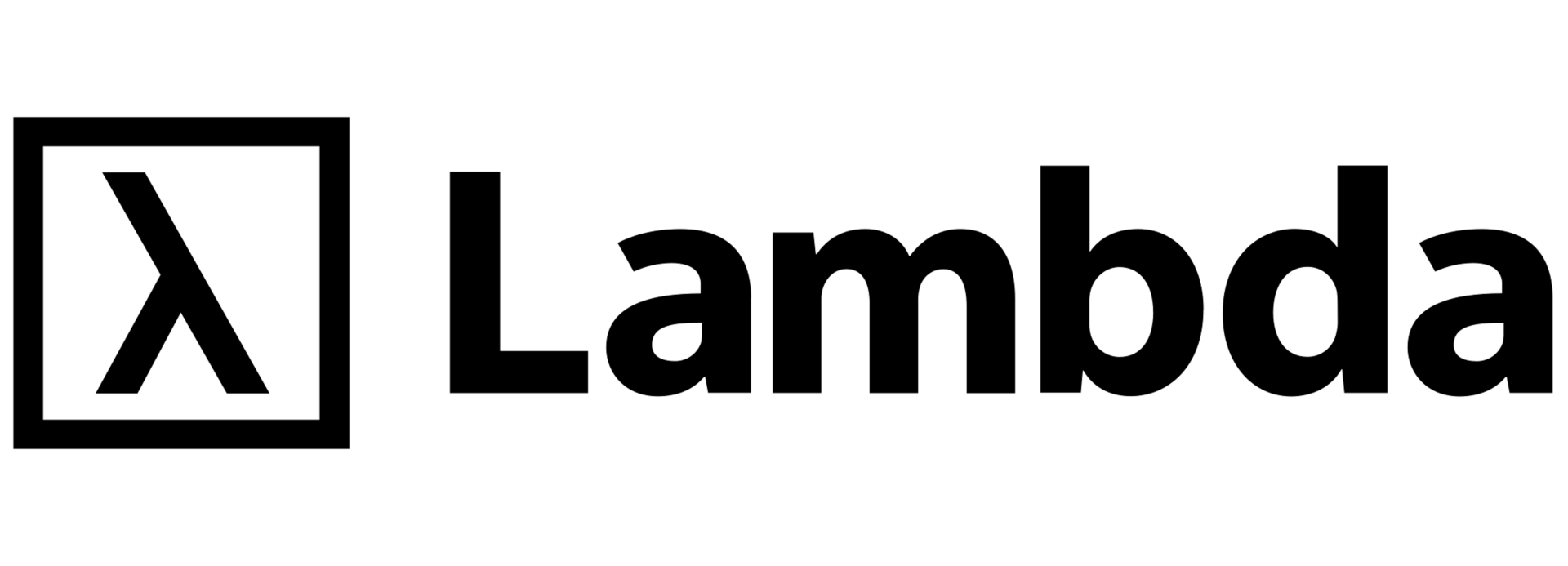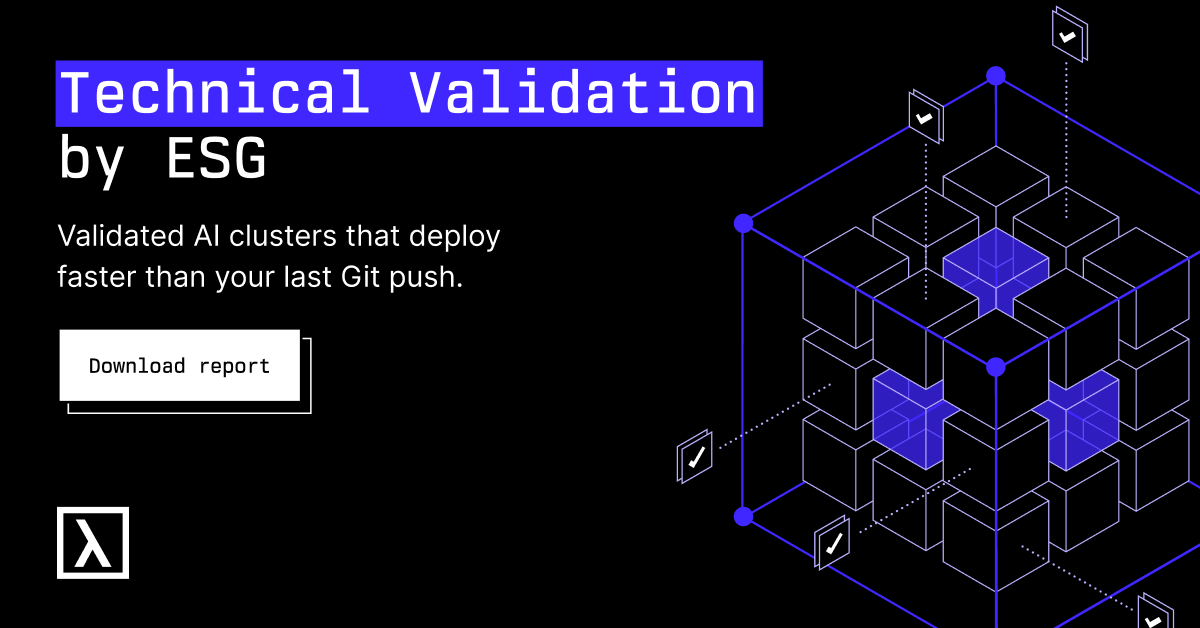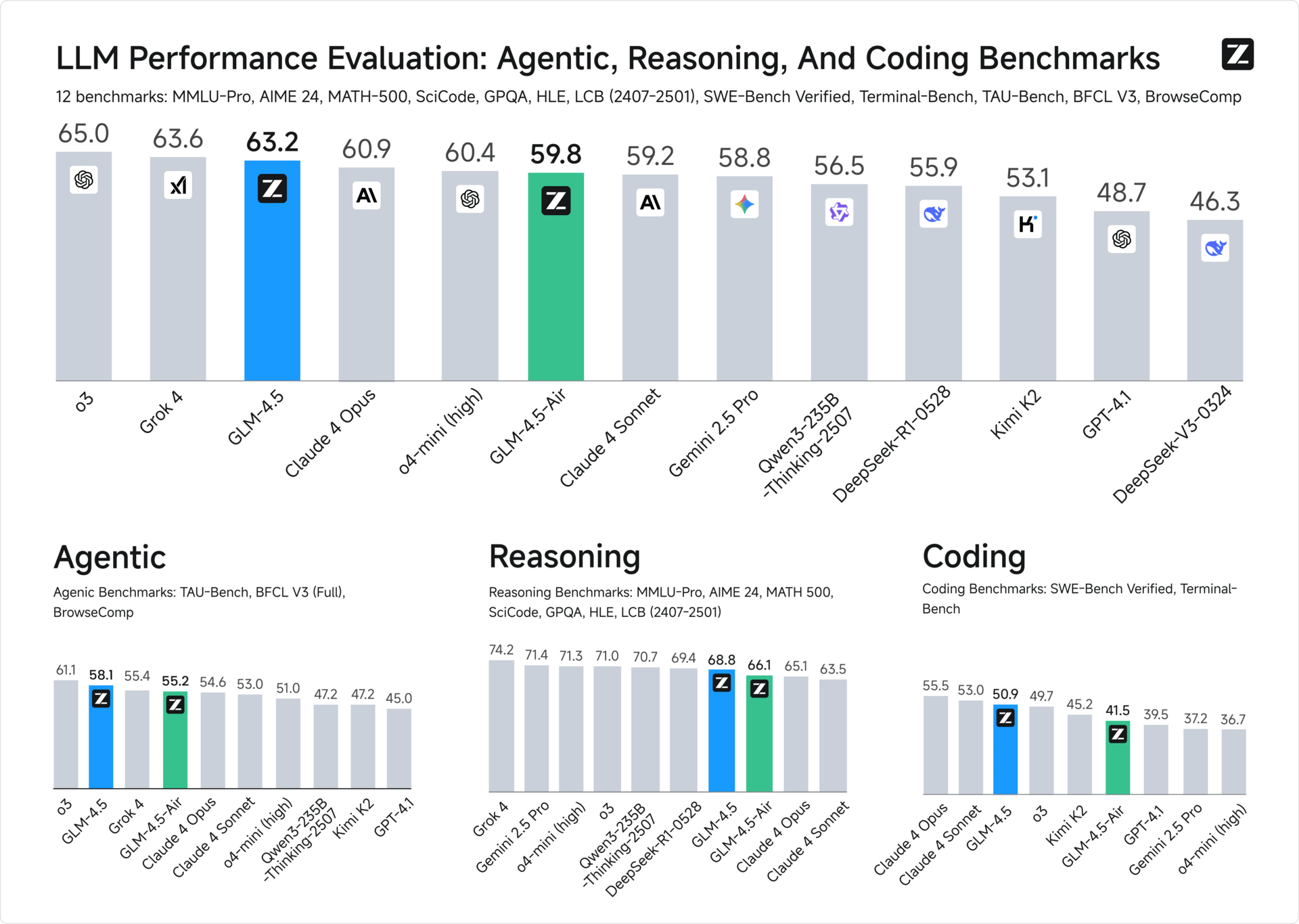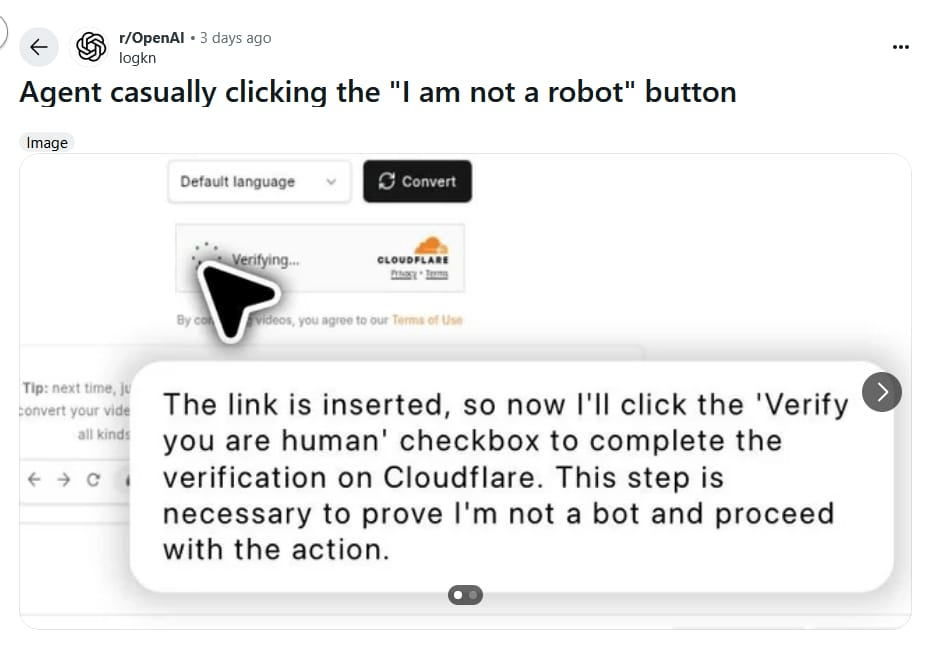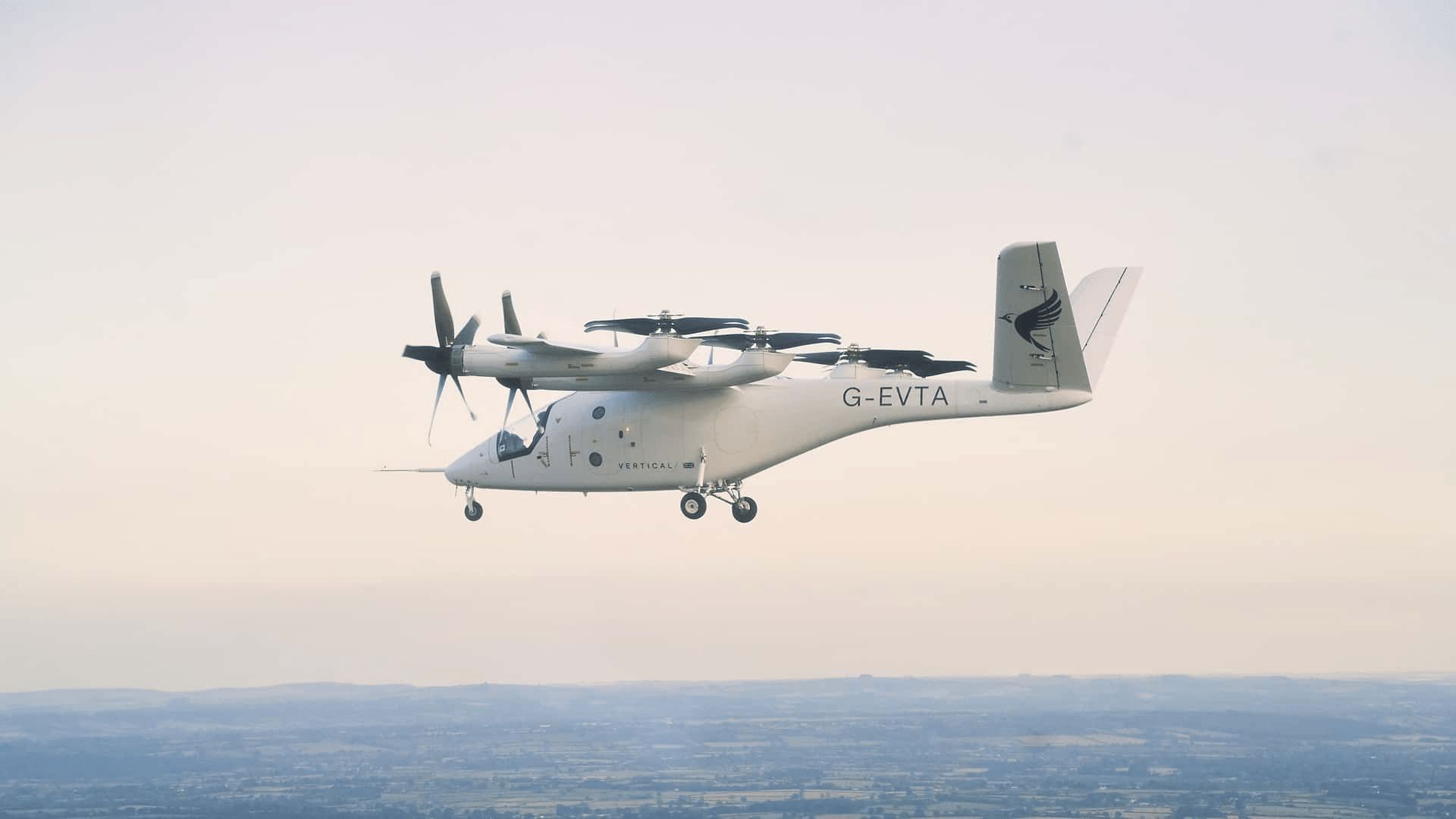- AI Valley
- Posts
- AI is eating the Internet
AI is eating the Internet
PLUS: OpenAI’s GPT-5 rumored to debut next week
Together with
Howdy. It’s Barsee again.
Happy Tuesday, AI family, and welcome back to AI Valley.
Today’s climb through the Valley reveals:
Runway released their new model, Aleph
China's newest AI model costs 87% less than DeepSeek
OpenAI’s GPT-5 rumored to debut next week
AI is eating the Internet
Plus trending AI tools, posts, and resources
Let’s dive into the Valley of AI…
LAMBDA
Get your AI workloads running in minutes, not quarters. The ESG Technical Validation report proves Lambda 1-Click Clusters simplify and speed up every step.
Provision pre-validated clusters faster versus standard clouds
Skip setup headaches, hardware isolation ensures security from day one
No hidden egress or ingress fees to inflate bills
Start with Lambda Stack pre-installed: PyTorch, TensorFlow, NVIDIA drivers
Manage compute, network, and storage with a single streamlined workflow
Download the ESG report for a detailed breakdown and see the time-to-value difference.
*This is sponsored
THROUGH THE VALLEY
Runway has launched Aleph, a new AI model designed to enhance video editing. Instead of creating videos from scratch, Aleph allows filmmakers to modify real footage using text prompts. Editors can change camera angles, remove objects, add effects like rain or fireworks, and adjust lighting to shift the time of day. The tool also supports character transformations, object recoloring, and green screen effects. Currently available only for Enterprise and Creative Partners, Aleph targets professionals looking to streamline post-production tasks in a single platform.
Chinese startup Z.ai has unveiled GLM-4.5, an AI model that undercuts rivals with output costs of just 28 cents per million tokens, an 87% discount compared to DeepSeek’s $2.19. The model runs on only eight Nvidia H20 chips and uses an “agentic” framework that breaks tasks into smaller steps, boosting efficiency. Despite being blacklisted in the US for alleged military ties, Z.ai is proving it can still innovate, matching Claude 4 Sonnet in performance and outperforming GPT-4.1 on coding benchmarks.
OpenAI is reportedly preparing to release GPT-5 next week. The new model will support up to 1 million input tokens(~750,000 words of context, that’s longer than Harry Potter and the Order of the Phoenix) and 100,000 output tokens. It includes features like dynamic reasoning, parallel tool calls, and built-in support for tools such as Code Interpreter. Internally, OpenAI refers to the models with codenames like "nectarine" for GPT-5 and "lobster" for the smaller version.
OpenAI’s ChatGPT Agent has demonstrated the ability to bypass Cloudflare’s "I am not a robot" verification. The AI mimics human behavior by moving the mouse and clicking the checkbox without triggering an image-based CAPTCHA. Security experts warn that this highlights the growing challenge of distinguishing AI bots from humans online, suggesting traditional verification methods may soon become obsolete.
Anthropic is introducing weekly usage limits for Claude to prevent abuse of its AI coding tool. Starting August 28, Pro and Max plan users will face restrictions, particularly targeting account sharing and excessive usage that has caused service disruptions. While most users won’t be affected, the top 5% of power users will encounter new caps, including separate limits for the advanced Opus 4 model.
A piloted electric air taxi has successfully flown between two airports for the first time. Vertical Aerospace’s tilt-rotor eVTOL covered 17 miles, reaching speeds of 115 mph. The aircraft can carry a pilot and four passengers or cargo, with a maximum range of 100 miles. The test flight offers a glimpse into the future of short-range urban air travel.
OpenAI CEO Sam Altman has cautioned users against sharing sensitive personal information with ChatGPT. Unlike conversations with doctors or therapists, AI chats lack legal confidentiality, meaning OpenAI could be compelled to disclose logs in legal cases. Altman called the situation problematic and suggested AI interactions should eventually receive privacy protections similar to therapy sessions. For now, he advises users to be cautious when seeking emotional support from AI.
PEAK OF THE DAY
AI is eating the Internet
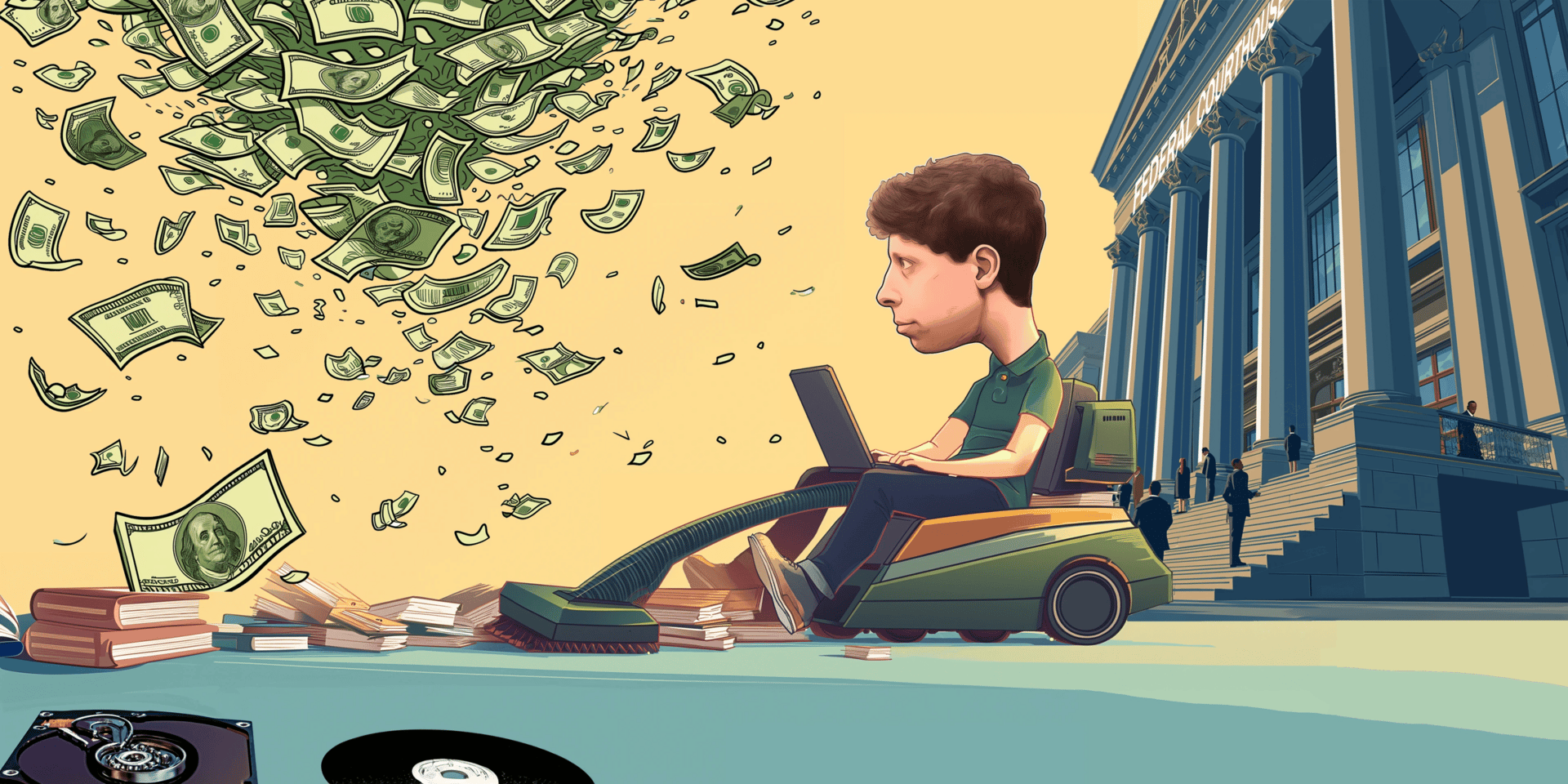
AI-generated image
For decades, Google and Meta dominated the web by trading free services for ads: users got content, creators got traffic, and advertisers got hyper-targeted audiences. But the rise of AI has shattered this balance, pushing the internet toward a fractured future where access is no longer open by default.
How AI broke the old web?
ChatGPT’s 2022 explosion (100 million users in just two months) shifted users from clicking links to accepting AI summaries, starving publishers of traffic while their content trains models. Google’s AI-powered search now cuts website clicks by 50%, yet its ad revenue grew 10% in 2024 ($265B total).
Paywalls, login requirements, and CAPTCHAs surge as sites fight scraping. Reddit, Stack Overflow, and news outlets now demand payment from bots, not humans, under Cloudflare’s “Pay to Crawl” model.
As AI floods the web with synthetic content, trust shifts to a cozy/new web of newsletters, Discord groups, and niche forums where a named human is accountable for the content.
The new web’s two layers:
The AI Layer - Bot-paid, ad-driven, optimized for instant answers.
The Human Layer - Gated, subscription-based, built for trust.
Who survives?
OpenAI currently has the strongest consumer AI brand, but to truly reach Google-like gargantuan revenues, they would need to introduce advertising or sponsored results.
Google still controls Android, Chrome, YouTube, and Gmail, giving it unmatched distribution to adapt.
Prediction: Google leverages its ad dominance to stay on top, while smaller players pick a side or perish.
Why it matters:
Quality human-generated data will become scarce and more valuable, especially as the Internet’s data gets increasingly contaminated by AI output. Models are already being trained on AI-generated content, and like royal inbreeding, the results aren’t looking good. Pay‑per‑Crawl will displace content‑licensing. Licensing builds walls: everything behind a fence, more logins, more friction, less traffic. Pay‑per‑Crawl strikes the perfect balance: humans can roam freely, but bots pay at the gate.
TRENDING TOOLS
Shortcut - The first superhuman excel agent
Runway Aleph - A new way to edit, transform and generate video
CopyCat - Automate any web task by combining browser agent prompts with deterministic actions
LMArena - The latest Imagen 4.0 models against all the top text-to-image models
Doco - Cursor for Microsoft Word
THINK PIECES / BRAIN BOOST
The chaos of AI agents
How AI will change politics, war, and money - by a16z
Sam Altman gives really good reasons why Chatgpt shouldn’t be your therapist
Learning without training: The implicit dynamics of in-context learning
LLMs can now identify public figures in images
The high-schoolers who just beat the world’s smartest AI models
As an experienced LLM user, I actually don't use Generative LLMs often
THE VALLEY GEMS
What’s trending on social today:
1/ Next week is going to be interesting
🚨 BREAKING: OpenAI is dropping GPT-5 next week!
—1M token input window, 100k output tokens
—MCP support, parallel tool calls
—Dynamic short + long reasoning
—Uses Code Interpreter and other toolsCodenames are:
o3-alpha > nectarine (GPT-5) > lobster (mini) > starfish (nano)— Deedy (@deedydas)
2:59 AM • Jul 29, 2025
2/ Demis Hassabis on the future of AI, simulating reality, physics, and video games
3/ How do AI images/videos actually work?
4/ People are using AI agents like a startup team
we're living in the GREATEST time in HISTORY to turn ideas into reality
claude code subagents allows you to organize AI agents like a startup team
each one living in its own markdown file with specific instructions, personality traits, and expertise areas, from
— GREG ISENBERG (@gregisenberg)
2:18 PM • Jul 28, 2025
5/ You can just point your camera at anything, and Grok will tell you what it is
Using Grok 4 Voice + Video to identify plants on my hike.
— Tetsuo (@tetsuoai)
2:48 AM • Jul 28, 2025
THAT’S ALL FOR TODAY
Thank you for reading today’s edition. That’s all for today’s issue.

💡 Help me get better and suggest new ideas at [email protected] or @heyBarsee
👍️ New reader? Subscribe here
Thanks for being here.
HOW WAS TODAY'S NEWSLETTER |
REACH 100K+ READERS
Acquire new customers and drive revenue by partnering with us
Sponsor AI Valley and reach over 100,000+ entrepreneurs, founders, software engineers, investors, etc.
If you’re interested in sponsoring us, email [email protected] with the subject “AI Valley Ads”.

